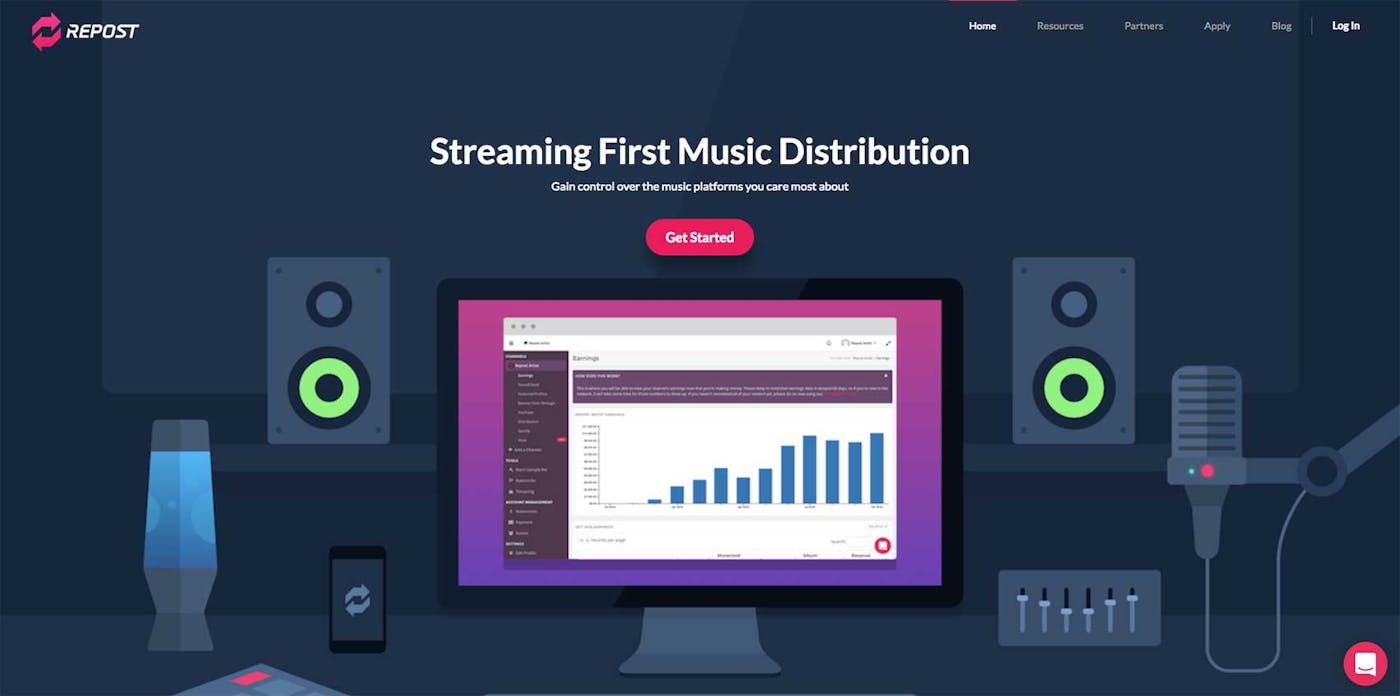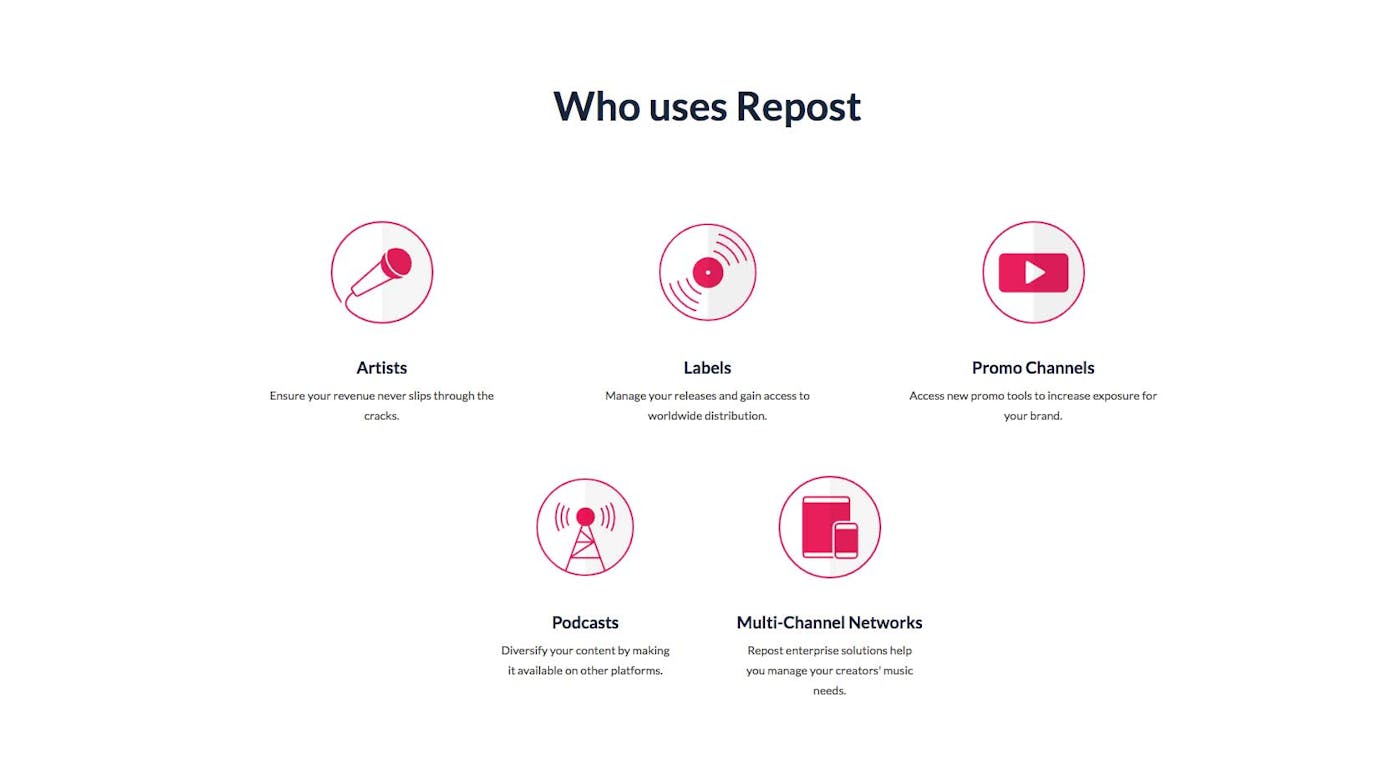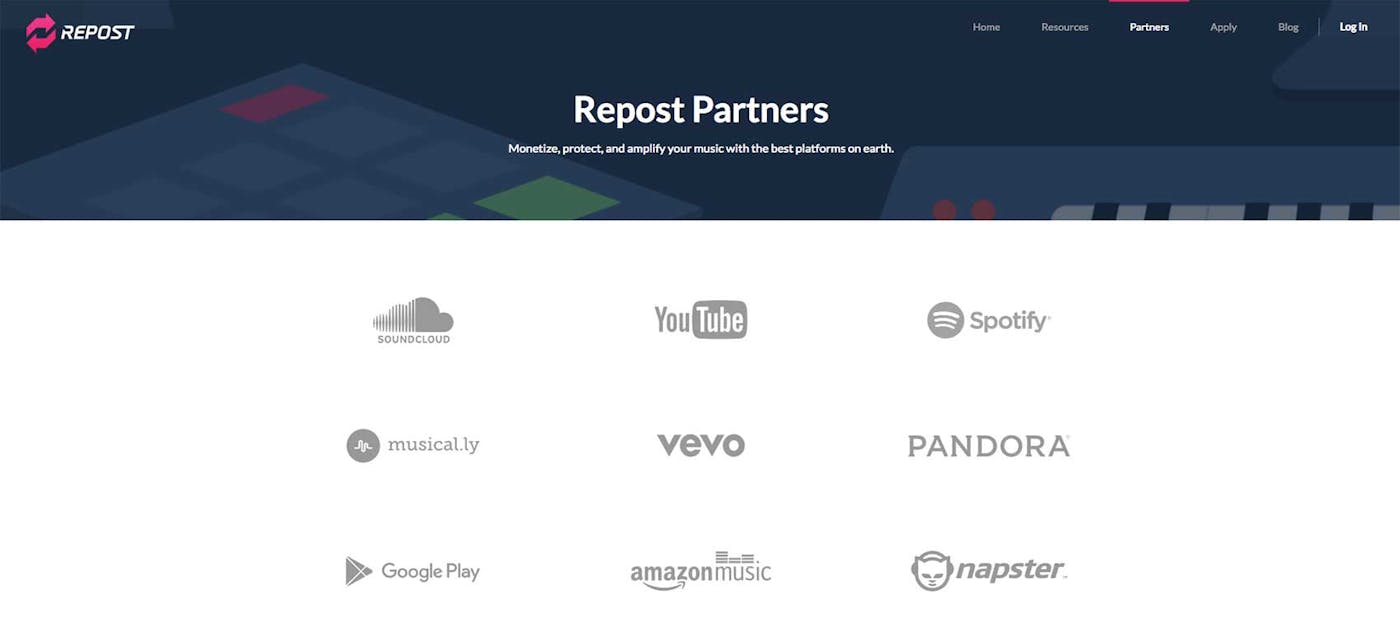Making Millions in Revenue by Helping Indie Artists Get
Paid
Hello! What's your background, and what are you working on?
My name is Jeff Ponchick. I'm originally from Venice, California. Before starting Repost Network I worked originally as a video editor in the reality television space. I then ended up working at Fullscreen, which was one of the largest MCNs (multi-channel networks) for YouTube where I eventually started helping to work with their music talent.
In 2017 I made the Forbes 30 under 30 list for music for my work at Repost Network. We were the only tech company to make the list in the vertical. All others were artists or managers.
In short, Repost Network is a streaming-first music distributor. We help artists and record labels deliver their music into platforms like Spotify, Apple Music, Tidal, etc., market their releases, and then collect on their earnings and pay them out. Artists generally want to sign up with us for our SoundCloud monetization and marketing services. We then upsell them to use us for YouTube and other platforms. So we work with a lot of SoundCloud rappers and electronic music producers.
We are the largest indie rightsholder on SoundCloud and account for between 5-10% of the entire platform's earnings. The only entities with a larger market share, to our knowledge, are the major labels.
Currently we have a $6-8M gross revenue run rate and are a little over two years old. We have also more than doubled our revenue every six months for the last two years.

What motivated you to get started with Repost Network?
The idea for Repost came when I was working at Fullscreen. Fullscreen was a YouTube MCN, but essentially acted as a management and advertising agency for YouTube influencers, and I worked with all of the top music talent. While I was there, SoundCloud rolled out monetization across the platform. So you could place an ad in front of a song, and the channel could then generate revenue. When I looked into the process, it was completely broken…
One had to clear publishing and transmit tons of metadata to SoundCloud and a third-party service for a track to start generating revenue. I basically realized I was in a position where I knew the biggest influencers on YouTube, understood the hurdles YouTube had gone through to make monetization better, and had a bit of a product background. I thought in my head, "Hey! I'm weirdly one of the people best suited to fix this problem."
Eventually I got the deal done and met Joey Mason, who would soon become my technical co-founder. We met at a bar in West Hollywood called the Surly Goat.
Repost 1.0 was a product in which, if an artist signed a revenue share agreement with us, we would give them access to a dashboard where we pulled in their music via API, and they could select what they wanted to monetize and what they didn't. We'd collect all the necessary rights information, and then automate clearance aspects on the back end.
Where it was taking other companies MONTHS to monetize a song on SoundCloud, we got it down to 2-3 days. When we cracked the code, it just exploded, and we started getting hundreds of applicants a day!
Then our artists started coming back to us and asking if we could bring them to Apple Music or Spotify. We eventually got deals done with each platform, and now represent content across 13+ platforms online and have diversified the revenue for our business. While SoundCloud is where we acquire our artists partners, it is by no means our largest platform by revenue.
How have you attracted users and grown Repost Network?
For the first six months I just reached out via cold email to artists all day every day, and we eventually hit a tipping point. Now it's all word of mouth — we have virtually no sales team.
Additionally, when we started the company I didn't have much money, but I saw that the most commonly searched term for SoundCloud producers was "How do I get more Reposts on SoundCloud?" A repost on SoundCloud is like a retweet on Twitter, so artists want as many of them as possible so their music will get heard.
I thought if I named the company Repost and dominated the SEO on that specific search we could get some free inbound traffic. My assumption worked. I believe if you search "SoundCloud repost" in Google we're one of the top hits, and something like 25% of our inbound applicants come organically.
We also implemented the velvet rope method (like a night club). At Repost we do not accept everyone. We've rejected close to 100,000 people and only work with 5,000 or so partners all via an application process. This makes our service offering feel exclusive which creates demand.
Finally: support. We OBSESS over support, and I think it's also one of our major marketing tools. I have a lot to say on this topic, but I wrote a blog post on what we do.

What's your business model, and how have you grown your revenue?
We operate on a revenue share with our artists. If we can generate or create revenue we will take a piece of it. Our general split is a 70/30 in favor of the artist, but this is totally negotiable. I like this because the success of our business is directly tied to the value we create for our customers. It forces us to put our money where our mouth is and drive real revenue.
At our core, our product offering is not sexy at all. It is a content delivery pipeline and payment calculator built upon PayPal. We chose PayPal because almost everyone is familiar and uses it, AND it is on them to issue 1099s come tax season. So while there are fees associated with using PayPal we don't have to have our accountants process and send out thousands of 1099s, which would not scale.
What really took our revenue off the charts was when fear of SoundCloud going under occured last summer. At the time, 70-80% of our clients were using us for SoundCloud ONLY and not for other platforms. We stopped everything and built a quick backup tool to let artists easily back their SoundCloud up into hard files so they could then distribute or "back it up" into other platforms. This changed the way our clients thought of us (from SoundCloud network to distributor) and really diversified the business.
Tip: Start off doing one thing really well, then once you master it and it pays for itself, hire someone to come in and run that aspect of the business while you explore something like 3-5 new revenue sources. For every new platform or service offering we launch, we choose not to pursue 10 others or so.
What are the biggest challenges you've faced and obstacles you've overcome?
Hiring/HR: Hire slow and fire fast. I had a lot of trouble firing people because I enjoyed working with the person(s) and because I cared about what they would think about me.
Finance: We ran into some growing pains once we started generating revenue in the 100Ks to the 1M+. Closing out 2017 from a finance and tax planning perspective was a massive learning curve. Unfortunately I think that is something that one benefits from by being thrown into the deep end on. You either learn to swim or you don't.
Mentorship/advisors: Always have three mentors.
- Someone who can help you to manage your day-to-day psychological health
- A mentor who is running a company that is on the scale or level of where you want to be in 1-2 years and can help you to get there
- A "50,000 square foot mentor": a thought leader in your industry whom you can bounce high-level ideas off of
I am constantly shocked by people who are fed up by their industry and decide to build tech in a space that they don't understand. If you're not willing to use your knowledge base or competitive advantages around a market, you might as well not do it at all.
Lean Startup should be mandatory reading.
It's all luck. How do you position yourself to be the best one to take advantage of a market shift that happens in the future? That's why so few startups ever end up doing what they set out to do. Stay lean, and be able to pivot, pivot, pivot.

Where can we go to learn more?
Comment:
Have any questions about Repost Network? Or know an artist who can benefit from our services! Drop a comment in the section below!

You didn't post much in your IH company timeline. Why is that?
hi Jeff, we got a product where your artists can benefit from in terms communication with their fans/following. Should I reach out with the email?
https://www.indiehackers.com/forum/over-1m-in-sales-since-12-17-ask-us-anything-b6e02398ca
Jeff. Congrats on your success. I think by “rage quit Fullscreen” you meant to say “took everything I learned at Fullscreen, including the relationships I built, and did what I was actually supposed to be doing at Fullscreen and turned it into my own little company, which is surely an unethical move... but ALSO an illegal one. Thankfully they didn’t give a fck!” Also, you fcked over Nick V in the process by robbing him of his equity stake. But again, congrats on your success. Keep it sleazy.
May be I missed something but I didn't see how many people are in the team, and how much money you spent to build the whole system.
The company is currently 14 people (mix of Salary + PT)
We've always taken all our net-revenues and re-invested it back into the company's growth so it is hard to say the full amount. We raised a modest amount of capital in our first year (less than $500k) when we were pre-revenue. Took over 1 year to reach profitability.
Thanks for your reply. This information changes the whole context of the article, still valuable :)
Good feedback thanks. I agree, probably should have been included in the write up.
I'd like to see some proof. Hard to believe that Repost is doing $500k without having any sort of online signup or even pricing info on their site. Not saying it's BS, but big claims need some proof or this site just because fiction writing.
You can try and apply below. We only accept channels which avg. 10k plays per upload on SoundCloud as smaller ones will not generate enough revenue to necessetate support resources. Once accepted the artist/label falls into an onboarding wizard where one agrees to TOS with pricing information included.
https://www.repostnetwork.com/apply.html
This comment was deleted 3 years ago
I believe he doesnt
@RPNJeff Amazing article! So inspiring...
Thanks!
This is super inspirational and well written. Congratulations on your success!!!
Thank you!
@RPNJeff could you elaborate on your cold email strategy?
Sure! Came up with 3 different types of reach out emails. then A/B tested each response in a google spreadsheet. I'd then go back after every 200 or so reach outs to see which email had the most successful response rate. Once I picked the winner I would keep that email, then create two new ones in the direction of the winning email and then test the 3 again. Sort of like a "keep breeding the winning horse" type scenario.
Fortunately most artists / labels put their contact email in their SoundCloud page's description or Facebook about section, so it wasn't to difficult to find leads.
Awesome! That's clever!
How would you characterize your winning emails? What were the subject lines? How long were they?
(I know there's a ton of literature on cold emails, but I'm curious if your experiences aligns well with conventional wisdom)
Shorter and straight to the point almost always won for us. No more than 5 sentences.
how many emails were you sending monthly and what was your success rate?
A lot. Successrate was low. It was a grind
@RPNJeff Very practical and common sense approach to building a product, thank you for the read!
How do you think about website design, or given the demand you have, there is no need to optimise and tweak it? It just serves as THE place from which artists can sign up/apply.
Thanks!
I don't think flashy design matters too much. Look at craigslist...
Just make sure you know what your funnel is and do everything you can to drive the people to that funnel. Websites which have multiple calls to actions can be the biggest design mistake one can make. Even if you have multiple customer types.
One can always improve on their website's design. That said, I am more partial to optimizing our core product's design rather than risking re-designing or optimizing a marketing site which is currently doing a good enough job of bringing us new clients. So, If it ain't broke don't fix it...
Makes sense, very true!
I've been neglecting to create a funnel for a long time due to a lack of e-commerce experience, focusing more on the design and content side of the business.
I did recently realise the importance of it though and have switched focus.
Thanks for your answer, will definitely take notes!
This comment was deleted 7 years ago